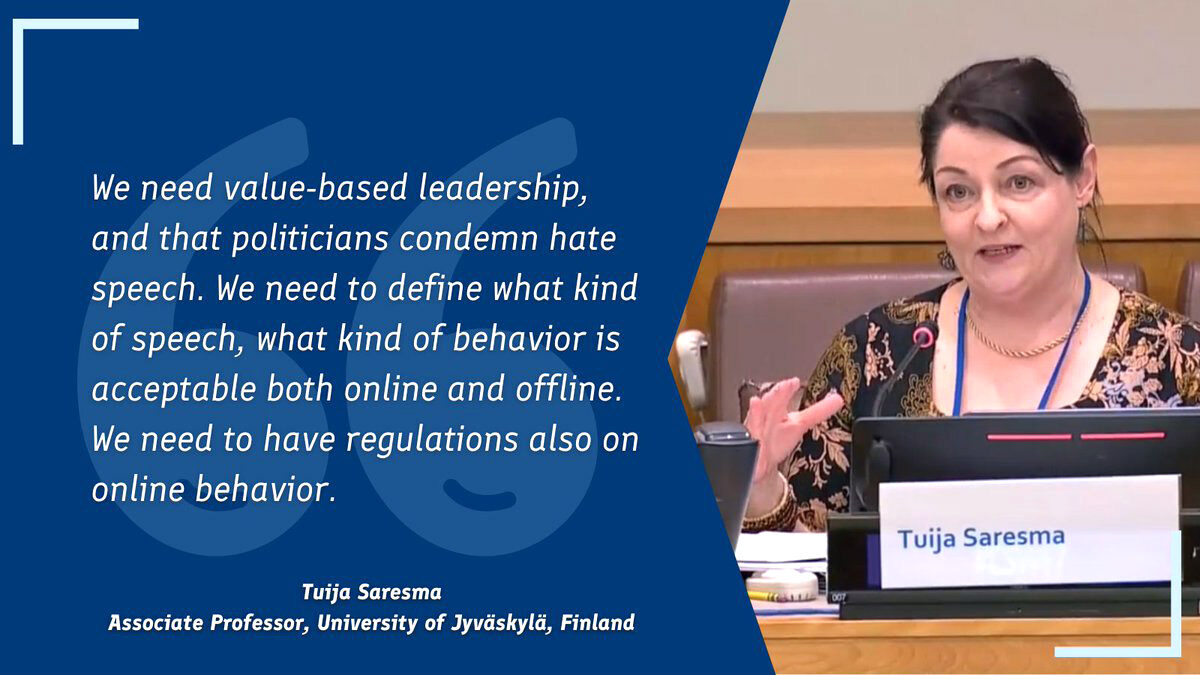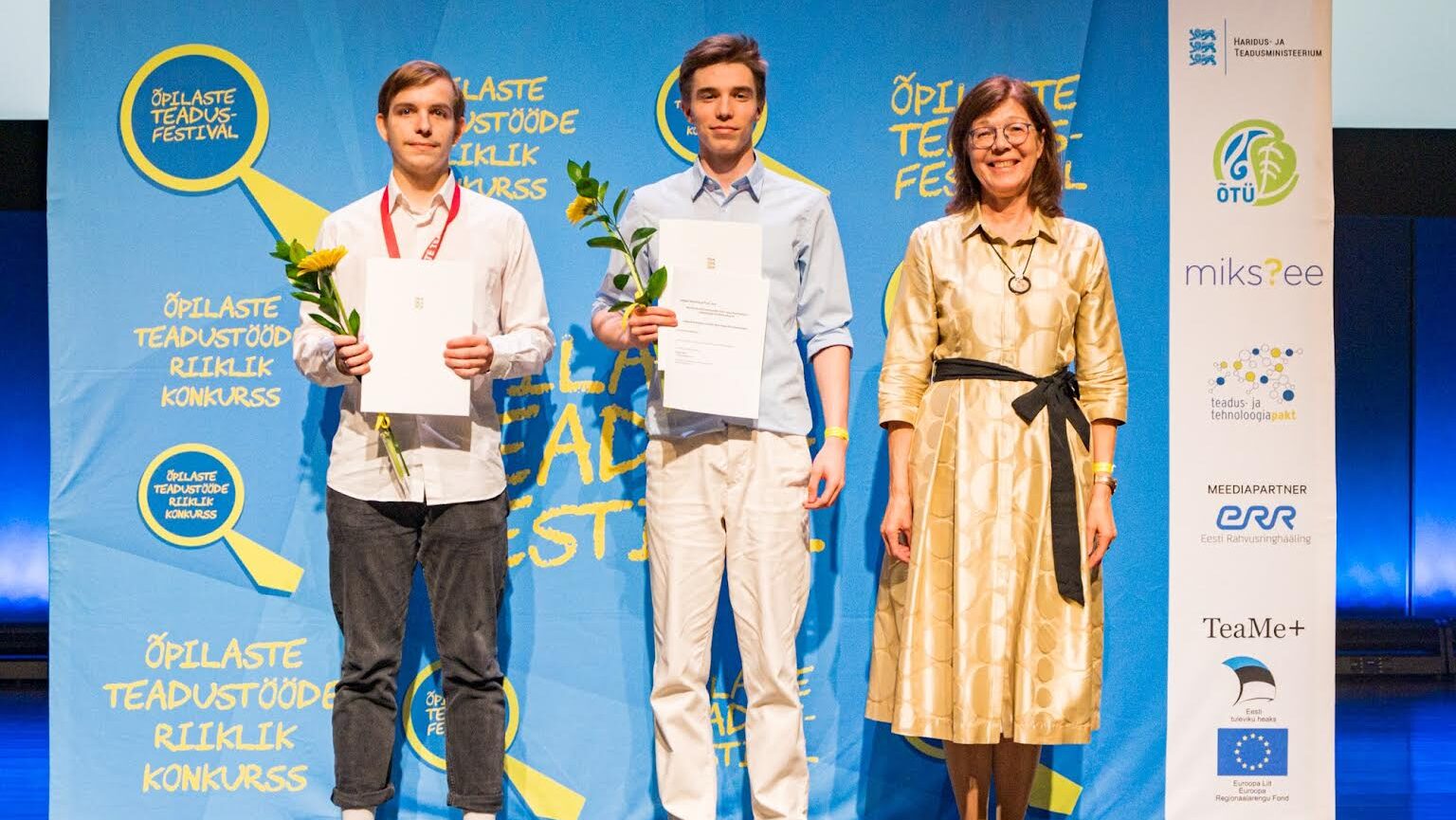While anyone can be a victim of online hate, it disproportionately affects women and girls. Known as technology-facilitated gender-based violence (TFGBV), perpetrators weaponize existing and emerging technologies to inflict harm in the online realm, which can also manifest in physical violence. It is uniquely complex—and its persistence undermines democracy.
This is what Nordic and Baltic experts said about TFGBV at the 67th Session of the Commission on the Status of Women (CSW67) in New York, which took place from March 6th to 17th, 2023. This year's theme focused on the empowerment of all women and girls in the context of technological change and digital innovation.
Women with intersecting identities, in abusive relationships, or in leadership positions are more likely to experience TFGBV
Panellists included María Rún Bjarnadóttir, Director for Internet Safety and Icelandic National Police Commissioner; Iluta Lāce, Director of the Association MARTA Centre Latvia; Kari Helene Partapuoli, National Director of Plan International Norway; Tuija Saresma, Senior Lecturer at the University of Jyväskylä, Finland; Christian Mogensen, Senior Tech Advisor, Office of Denmark's Tech Ambassador to the U.S.; and Christian Veske, Gender Equality and Equal Treatment Commissioner at EIGE, Estonia. The panel was moderated by Karen Ellemann, Secretary General of the Nordic Council of Ministers. Anette Trettebergstuen, the former Minister of Culture and Equality in Norway, gave an opening speech.
Women with intersecting identities, in abusive relationships, or in leadership positions are more likely to experience TFGBV, including “dissemination of harmful lies, impersonation, doxing, sextortion, trolling, the creation of manipulated images, mobbing (or networked harassment), and stalking,” according to a 2020 report by the Centre for International Governance Innovation.
Young girls remain at risk as well. “We spoke to tens of thousands of girls across the globe and asked what digital violence looked like to them. Six out of every ten told us that they have experienced digital violence and harassment. That is a huge number,” said Partapuoli.
These forms of TFGBV (amongst others) are symptomatic of a larger culture of misogyny and violence prevalent in society and the “gamification of abuse and commercialization of the female body” in particular, according to Bjarnadóttir.
But TFGBV isn't just a one-way street. “Young girls that experience online violence are more likely to experience offline violence, too. There are synergies here that we need to understand,” said Partapuoli.
The persistent threat of violence and lack of available resources for victims forces many women to withdraw from the internet altogether
Despite this, Veske said that many are still inclined to dismiss TFGBV as a “fringe issue.” A report created by CIGI in 2020 notes that many women are told to simply disconnect from the digital world to mitigate the effects of the abuse they experience. Victim-blaming perspectives such as this fail to address TFGBV's root causes and ignore the fact that “disconnecting” from the internet in the current digital age is neither possible nor reasonable. This is especially true for those living in states that have turned to e-governance systems to provide “basic governmental and civil society services,” including Estonia—which, crucially, has declared internet access a fundamental human right.
The persistent threat of violence and lack of available resources for victims forces many women to withdraw from the internet altogether, “silencing and isolating themselves and eventually losing opportunities to build their education, professional career and support networks,” according to EIGE. An increasingly less-diversified marketplace of ideas threatens core democratic values, such as “gender equality, equal democratic participation, and freedom of speech,” said Ellemann.
So, what is there to be done?
Experts on the panel placed the onus of responsibility on politicians and social media platforms. “We need value-based leadership and politicians who condemn hate speech, for lawmakers to clearly define regulations of online behaviour, clearer sets of tools and responsible agencies, and increased visibility for the fact that online hate speech impacts democracy,” said Saresma.
Technological advancement is inevitable. To prevent it from replicating the inequalities that exist today, it is imperative that principles of gender equality drive its innovation.
A recorded live stream of the panel is available to watch here.
This article was written by Natalie Jenkins as part of the Local Journalism Initiative.




